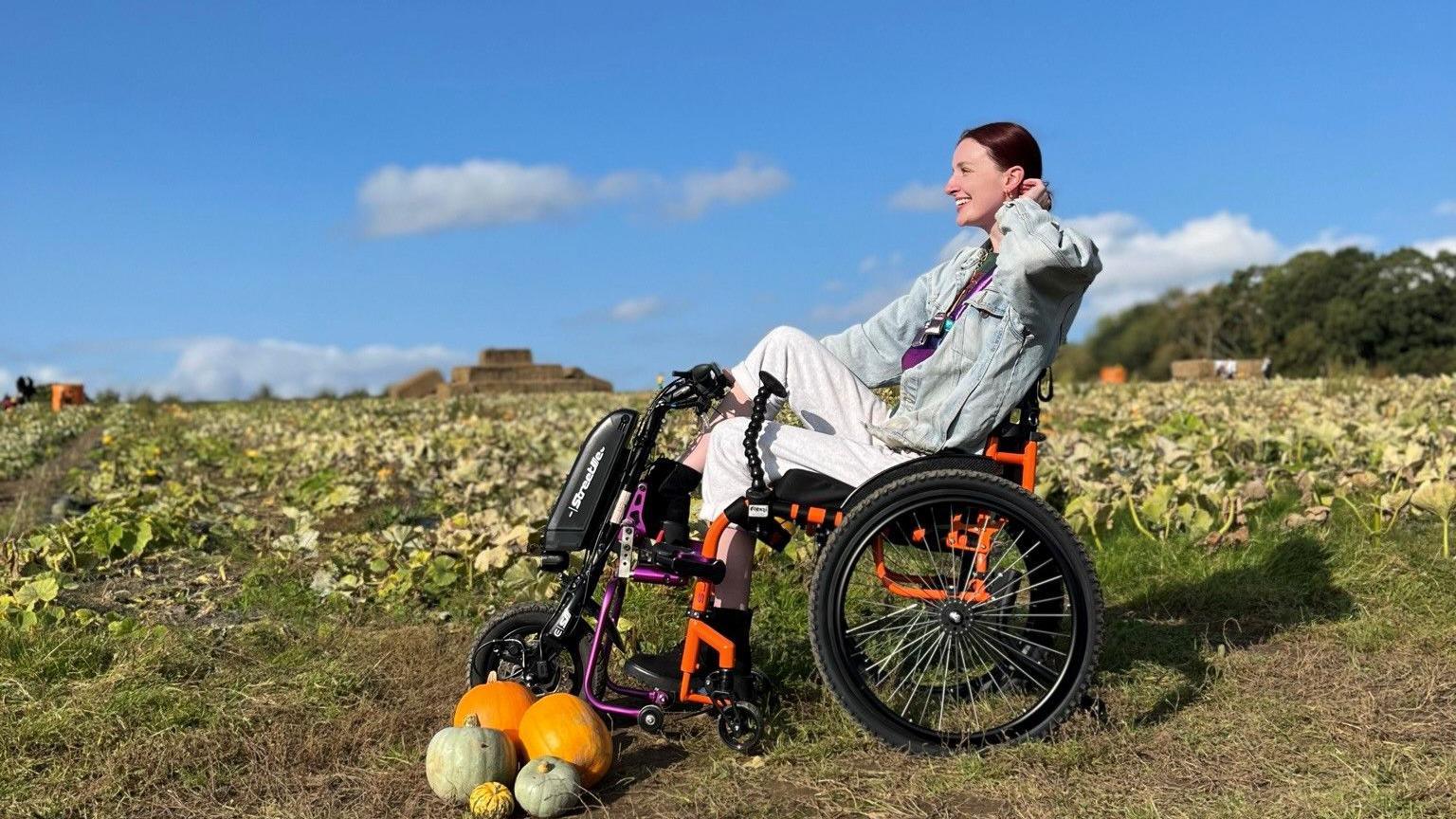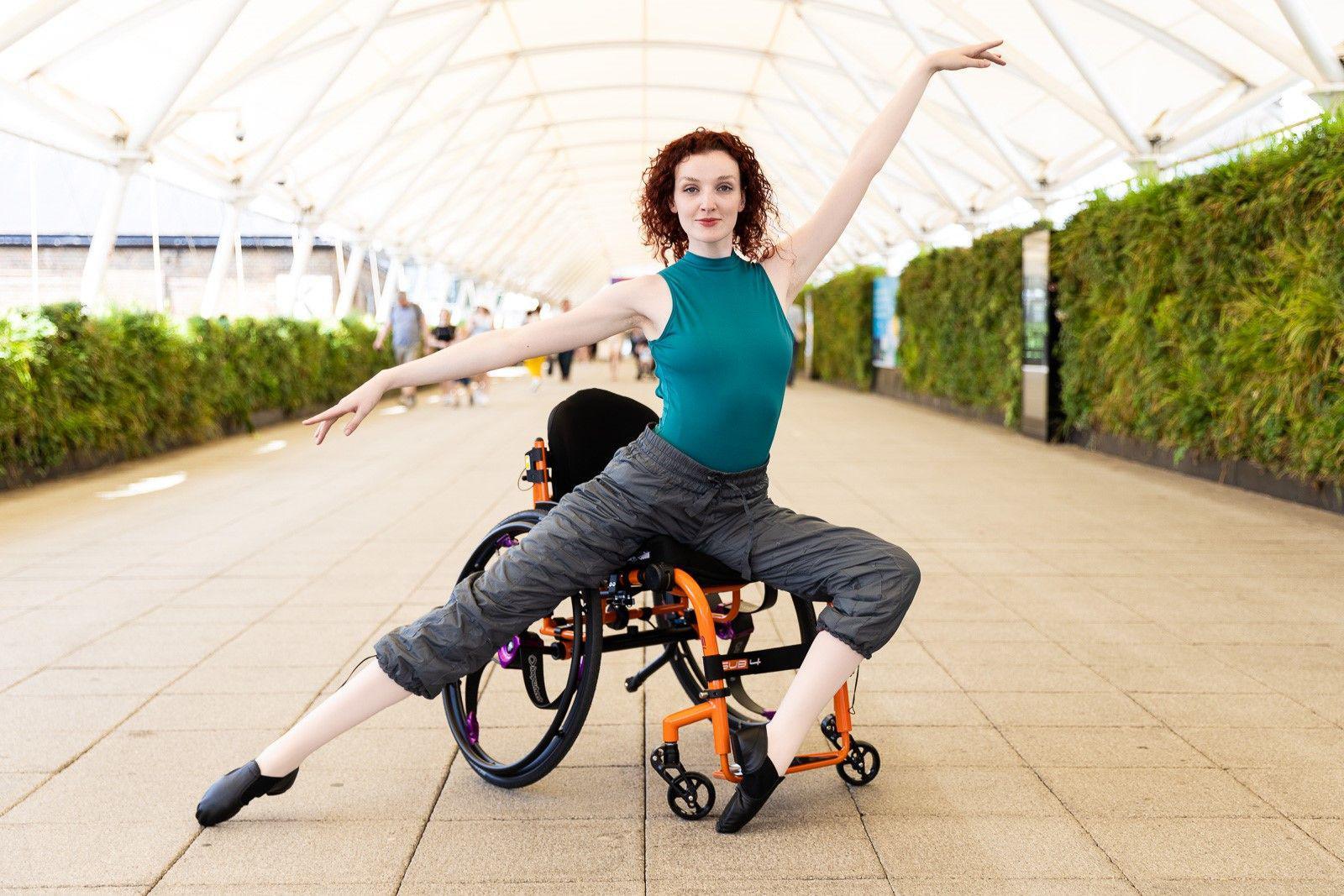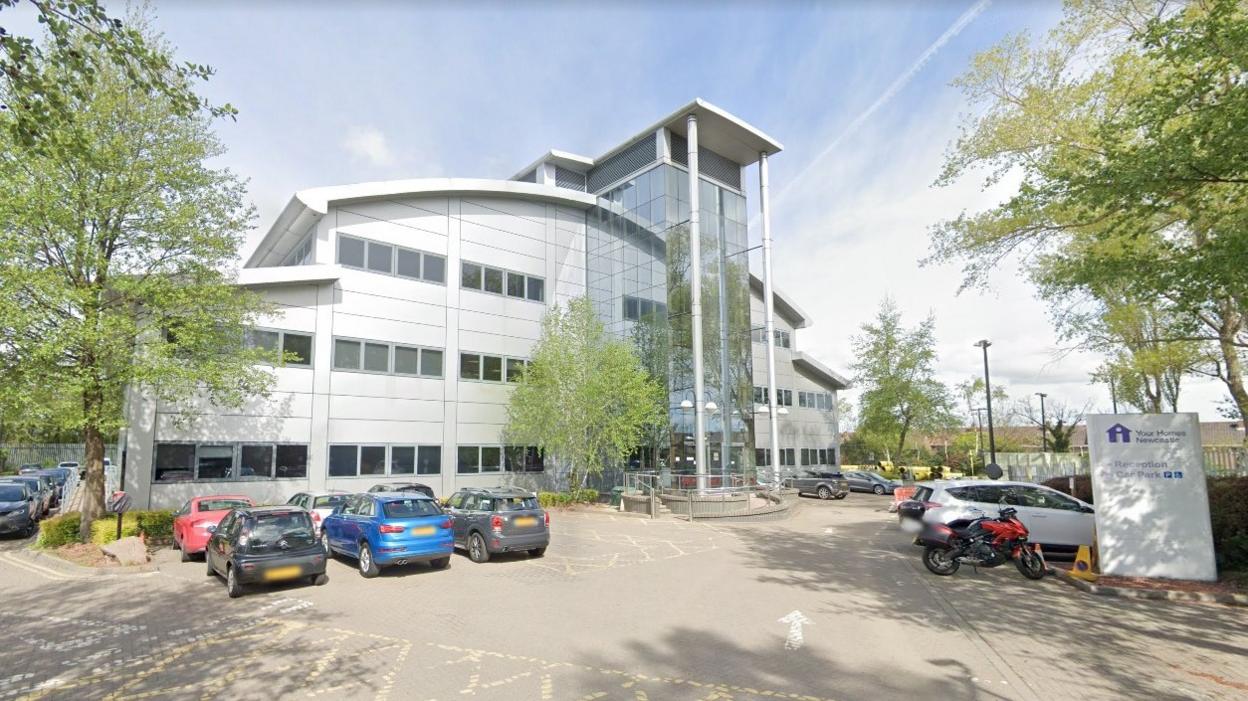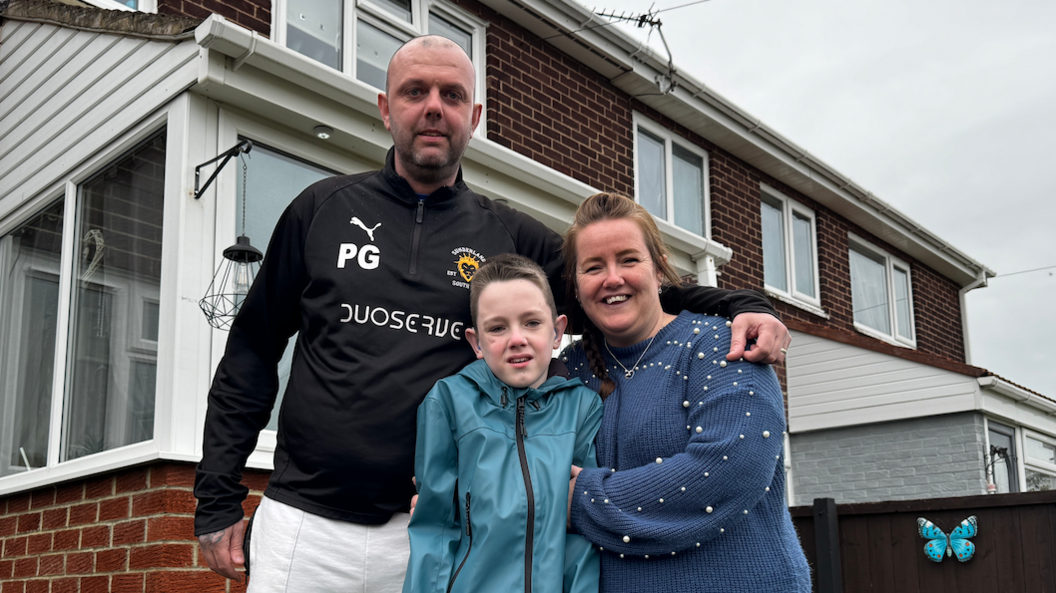Campaigners concerned over lack of accessible housing

Kate Stanforth said she is "one of the very lucky people" to have her own accessible house
- Published
Disability campaigners have called for more to be done to provide accessible housing in the north-east of England.
Research from Disability Rights UK shows outside London under a quarter - 23% - of new homes due to be built by 2030 are accessible and only 1% will be suitable for wheelchair users.
Figures show the North East has the highest proportion of disabled people and one woman told how spending years on a waiting list for housing had been "exhausting".
The Department for Levelling Up, Housing and Communities (DLUHC) said it had invested more than £5.4bn so homes could be modified to meet residents’ needs.
Kate Stanforth, a content creator, dance teacher and disability activist, now lives in a bungalow in Northumberland.
But she said: “I was on the housing list for years. And I mean years. I would apply for bungalows all the time and there were so many people applying for these bungalows.
"I remember one bungalow there was about 65 people applying and I thought I just don’t stand a chance here.”
She said her home still “isn’t perfect”, as narrow doorways and high countertops in the kitchen make it difficult to access in her wheelchair.

Ms Stanforth said one bungalow had had 65 people applying for it
The North East has the highest proportion , externalof disabled people in England, figures from the 2021 Census showed.
Difference North East, a disabled-led campaigning organisation, believes the lack of accessible housing is because “regulations aren’t in place.”
Development manager Nic Cook said “local authorities can ask developers to be building accessible housing but they need to identify a local need first”.
“Local authorities are not identifying that local need enough, so the amount of accessible housing that’s being built doesn’t reflect disabled people's needs in our communities in the North East.”
The DLUHC said: "The National Planning Policy Framework sets out that local authorities should assess the size, type and tenure of housing needed for different groups in their communities and reflect this in their Local Plan.”
Follow BBC North East on X (formerly Twitter), external, Facebook, external and Instagram, external. Send your story ideas to northeastandcumbria@bbc.co.uk.
Related topics
More stories from BBC North East and Cumbria
- Published23 November 2023

- Published22 February 2024
